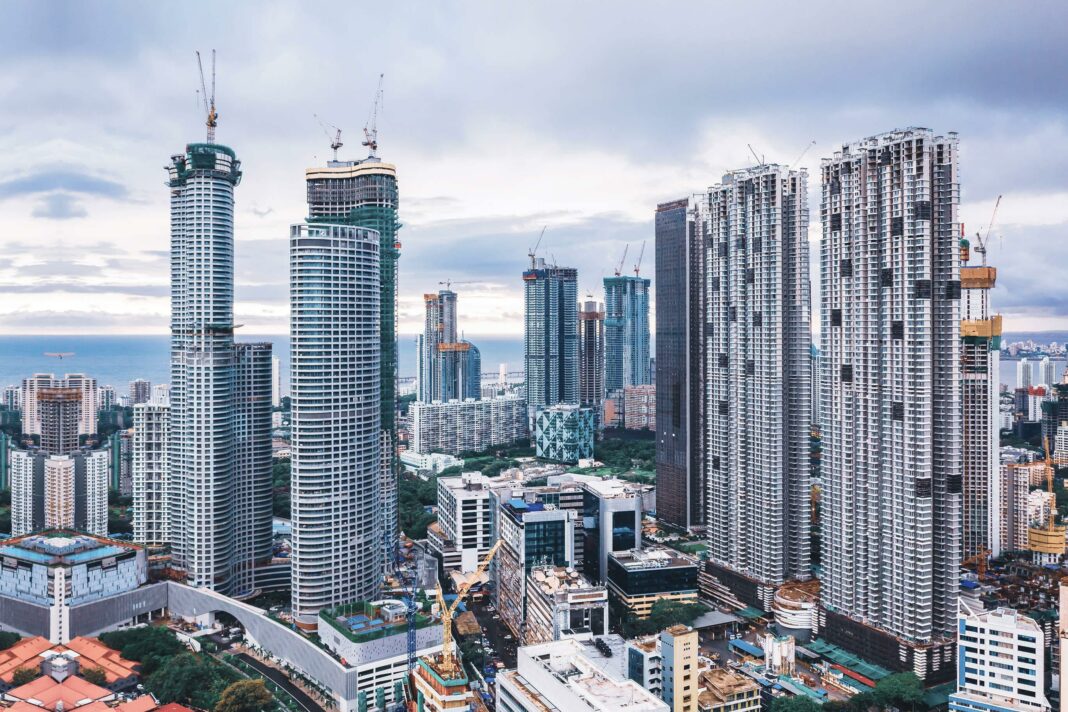News
Office leasing in India records highest-ever quarterly growth of 18.2 mn sq ft in Q2’22


July 11, 2022: CBRE South Asia Pvt. Ltd, on Monday announced the findings of its latest office report, ‘CBRE India Office Figures Q2 2022’. The report findings reveal office sector leasing in India recorded the highest-ever activity with a strong performance in Q2 2022, which grew by 61% in Q2 2022 and 18.2 million sq. ft.
City Highlights:
Bangalore emerged as the frontrunner in overall office leasing in Q2 2022
– ORR, NBD and CBD witnessed quarterly jump in leasing activity.
– Key sectors driving absorption included technology corporates (58%), flexible space
operators (11%) and engineering & manufacturing (10%) firms.
Hyderabad’s office leasing was led by engineering & manufacturing companies
– SEZ spaces accounted for 74% and 69% share of supply and absorption, respectively.
– Key sectors driving absorption included engineering & manufacturing (53%) and life
sciences (16%).
Delhi-NCR witnessed strong occupier traction, led by e-commerce and technology
players
– Medium-sized deals dominated the absorption.
– Key sectors driving absorption included e-commerce (22%), technology (18%), and
flexible space operators (10%).
Mumbai witnessed a significant uptick in both supply and leasing
– Space take-up was witnessed across IT, non-IT and SEZ segments with a share of 58%,
35% and 7%, respectively.
– Key sectors driving absorption included BFSI firms (40%), infrastructure, real estate &
logistics (13%) and flexible space operators (11%).
Chennai absorption outpaced supply
– GST Road and Off CBD drove supply in Q2 2022.
– Key sectors driving absorption included technology (28%), BFSI (27%), and flexible space
operators (17%).
Pune’s quarterly absorption was led by technology firms and flexible space operators
– Around 65% of the absorption and 51% of the supply in Q2 2022 were witnessed across
IT developments.
– Key sectors driving absorption included technology (35%) corporates, flexible space
operators (32%), and engineering & manufacturing (14%) firms.
Kolkata saw technology firms and flexible space operators lead quarterly absorption
– Absorption outstripped supply during the quarter
– Key sectors driving absorption included technology firms (27%), flexible space operators
(26%), and BFSI (17%) companies.
Bangalore, Delhi-NCR, and Hyderabad dominated the office space absorption in Q2 and accounted for nearly two-thirds of the overall transaction activity. Among all major cities, Bangalore led the office space absorption with 5.6 mn sq. ft., followed by Delhi-NCR at 3.9 mn sq. ft. and Hyderabad at 2.6 mn sq. ft. in Q2 2022. Technology corporates drove leasing momentum with a share of about 31%, followed by engineering & manufacturing companies (16%), flexible space operators (12%), banking & financial services (BFSI) firms (12%), and e-commerce (7%) players.
The report further highlighted office space take-up in Q2 was driven by small- (less than 10,000 sq. ft) to medium-sized (10,000-50,000 sq. ft.) transactions with a share of around 84%. Bangalore, followed by Delhi-NCR, Pune, and Hyderabad, dominated large-sized deal closures during the quarter, while a few deals were also reported in Mumbai, Chennai, and Ahmedabad.
Due to decreasing vacancy and rising demand for premium assets, a rental increase of about 1-5% Q-o-Q was recorded across multiple micro-markets in Delhi-NCR, Chennai and Bangalore, and PBD Hinjewadi in Pune. Moreover, driven by growth in select premium assets, SBD Kharadi in Pune and PBD in Hyderabad recorded a rental rise of about 6-9% Q-o-Q.
The report points out that office space supply witnessed an uptick in Q2 2022, growing by 78% Q-o-Q and 64% Y-o-Y touching 16.7 million sq. ft. The supply addition in Hyderabad was particularly notable, as the city’s stock crossed 100 million sq. ft. during the quarter, making it the fourth market in India after Bangalore, Mumbai, and Delhi-NCR to reach that milestone. Hyderabad, Delhi-NCR, and Bangalore led the supply addition during the quarter and in H1 2022, accounting for a cumulative share of 76% and 68%, respectively. On an H1 basis, office absorption stood at ~29.5 million sq. ft., recording a growth of 157%(Y-o-Y). In H1 2022, about 26.1 million sq. ft. of new completions were witnessed – increasing by 26% Y-o-Y.
| Kochi saw technology firms and flexible space operators lead quarterly leasing – Leasing activity was primarily witnessed in SEZ spaces. – Key sectors driving absorption included technology firms (61%), flexible space operators (25%) and BFSI companies (14%). Ahmedabad saw engineering & manufacturing firms lead quarterly leasing – Non-IT spaces accounted for 100% and 97% share of supply and absorption, respectively. – Key sectors driving absorption included engineering & manufacturing (67%), BFSI (12%) and flexible space operators (11%). |


Anshuman Magazine, Chairman & CEO – India, South-East Asia, Middle East & Africa, CBRE, said, “The office sector in India reflected a strong recovery in H1 2022 as occupier sentiments were uplifted due to the relatively reduced severity of the Omicron wave, the subsequent relaxation of restrictions, and improved economic activity. It is evident from the leasing activity that employees are resuming office with a flexible approach.
CBRE’s Asia Pacific Leasing Sentiment Survey recorded a significant surge in leasing sentiments across most APAC markets in June 2022, with the highest rise witnessed in India. This also signifies that the outlook for annual space absorption for 2022 is likely to be higher than 2021.”


Ram Chandnani, Managing Director, Advisory & Transactions Services, CBRE India, said, “As the recovery momentum remains upbeat, differentiated and high-quality institutional supply in core markets would continue to draw flight-to-quality absorption. In line with the expected demand, new investment-grade supply lined up across markets is expected to become operational in the coming quarters.”
Other observations
- Bangalore, Delhi-NCR, and Hyderabad will continue to drive transaction activity in 2022. Markets such as Mumbai, Pune, and Chennai would also witness improved leasing volumes.
- Space take-up would be attributable to the release of pent-up demand and expansion & consolidation requirements of occupiers.
Key trends:
- Renewals and renegotiations continue to remain the preferred short-term portfolio strategies of occupiers.
- Increased adoption of activity-based working, targeted mobility, and hotdesking was witnessed post the pandemic and is expected to grow further.
- Technology would be key to implementing hybrid working going forward, indicating of increasing investment in WorkTech.
- Flexible work patterns have increased in prevalence post the pandemic. However, several occupiers are yet to formally define hybrid working and formulate the requisite policies and guidelines for their employees.
- The use of flexible spaces – including managed offices and coworking spaces – in corporate real estate portfolios would continue to become more prominent in the long term.
-



 News3 weeks ago
News3 weeks agoKW Delhi 6 Mall Onboards New Brands
-



 News3 weeks ago
News3 weeks agoManasum Senior Living Launches IKIGAI GOA, A Senior Living Community in North Goa, in collaboration with Prescon Homes
-



 News2 weeks ago
News2 weeks agoGodrej Properties Sells Rs 3k cr+ Homes of Godrej Zenith, Gurugram, within 3 days
-



 News3 weeks ago
News3 weeks agoBridging India Divide: Top 5 Tier- 2 Cities to Focus On
-



 News3 weeks ago
News3 weeks agoCommercial Realty Gets Tech Savvy: Fast Construction, Enhanced Convenience
-



 News3 weeks ago
News3 weeks agoMultipoint Connection – A Definite Boon
-



 News2 weeks ago
News2 weeks agoRBI’s Status Quo on Key Policy Rates to Help Maintain the Real Estate Growth Momentum, Say Industry Stalwarts
-



 News3 weeks ago
News3 weeks agoSacred Cities See a Retail Boom as Spiritual Tourism Surge: CBRE Report



















